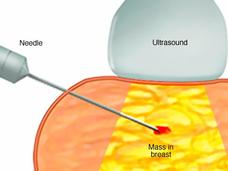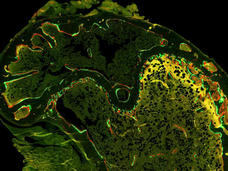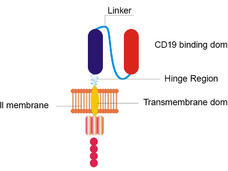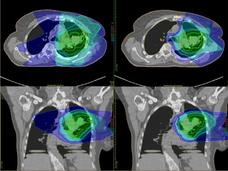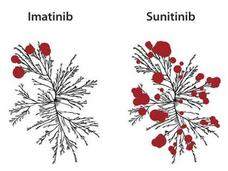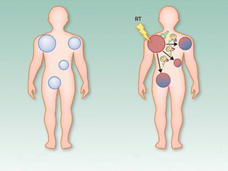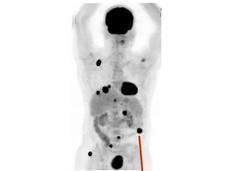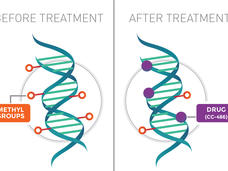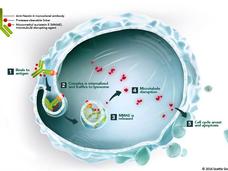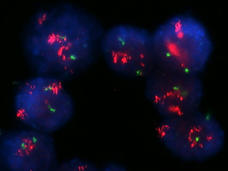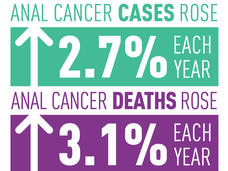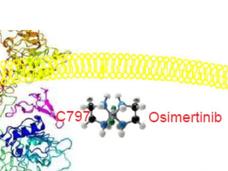Cancer Currents: An NCI Cancer Research Blog
A blog featuring news and research updates from the National Cancer Institute.
-
New Approach Uses Much Less Tissue to Analyze Tumor Proteins and Genes
Researchers have developed a “microscaled” approach to analyze the proteins and genetic changes (proteogenomics) of a tumor that uses tissue from a core needle biopsy. The analyses can provide important information that may help guide treatment.
-
Mouse Study Points to Strategy for Preserving Bone During Chemotherapy
Bone loss associated with chemotherapy appears to be induced by cells that stop dividing but do not die, a recent study in mice suggests. The researchers tested drugs that could block signals from these senescent cells and reverse bone loss in mice.
-
Remodeled CAR T-Cell Therapy Reduces Side Effects in First Clinical Trial
A remodeled CAR T-cell therapy causes fewer neurologic side effects and is equally effective as the original form of the treatment, according to results from the first clinical trial testing the approach in patients with B-cell lymphomas.
-
VA Study Finds No Disparities in Prostate Cancer Deaths with Equal Access to Care
In the Veterans Affairs health care system—where all patients have equal access to care—African American men did not appear to have more-aggressive prostate cancer when diagnosed or a higher death rate from the disease than non-Hispanic white men.
-
Artificial Intelligence Expedites Brain Tumor Diagnosis during Surgery
A method that combines artificial intelligence with an advanced imaging technology can accurately diagnose brain tumors in fewer than 3 minutes during surgery, a new study shows. The approach can also accurately distinguish tumor from healthy tissue.
-
Is Proton Therapy Safer than Traditional Radiation?
Some experts believe that proton therapy is safer than traditional radiation, but research has been limited. A new observational study compared the safety and effectiveness of proton therapy and traditional radiation in adults with advanced cancer.
-
Avapritinib Approved to Treat GIST with a Rare Gene Alteration
Avapritinib (Ayvakit) has been approved for adults with gastrointestinal stromal tumors (GIST) whose tumors have an alteration in a portion of the PDGFRA gene called exon 18. The approval applies to those whose tumors cannot be removed with surgery or have spread.
-
Off Target: Investigating the Abscopal Effect as a Treatment for Cancer
In people with cancer, the abscopal effect occurs when radiation—or another type of localized therapy—shrinks a targeted tumor but also causes untreated tumors in the body to shrink. Researchers are trying to better understand this phenomenon and take advantage of it to improve cancer therapy.
-
Changes in Metabolism Help Melanomas Spread
Melanoma cells that metastasize to other parts of the body produce high levels of a protein called MCT1, a new study in mice has found. Blocking MCT1 with an investigational drug, AZD3965, led to fewer and smaller metastatic tumors.
-
Maintenance Therapy with CC-486 Extends Survival of Adults with AML
Maintenance therapy with CC-486 extended overall survival of adults with the blood cancer acute myeloid leukemia (AML) in a large clinical trial. CC-486 is a pill form of another cancer therapy called azacitidine (Vidaza).
-
Enfortumab Vedotin Approved for Recurrent Bladder Cancer
Enfortumab vedotin-ejfv (Padcev) has been approved for people with advanced bladder cancer. FDA granted the drug accelerated approval for cancers that have progressed despite previous treatments.
-
For Metastatic HER2-Positive Breast Cancer, New Treatments Emerge
Tucatinib improved survival for women in the HER2CLIMB trial, including some whose cancer had spread to the brain. Trastuzumab deruxtecan improved survival and shrank many tumors in the DESTINY-Breast01 trial, which led to its accelerated approval.
-
Brain Cancer Cells Hijack Gene “On Switches” to Drive Tumor Growth
Glioblastoma cells sneak many copies of a key oncogene into circular pieces of DNA. In a new NCI-funded study, scientists found that the cells also slip several different genetic “on switches” into these DNA circles, helping to fuel the cancer’s growth.
-
Oncofertility: Creating a Bridge Between Cancer Care and Reproductive Health
Dr. Teresa Woodruff discusses the field that connects oncology with reproductive health, and the Oncofertility Consortium’s efforts to support clinicians, cancer patients, and families in understanding how cancer and its treatment affect fertility.
-
Anal Cancer Incidence and Deaths Are Rising in the United States
The number of cases and deaths from anal cancer have been on the rise in the United States since 2001, according to a new study. The increases have been especially rapid in two segments of the population.
-
Osimertinib Improves Survival in Advanced Lung Cancer with EGFR Mutations
Osimertinib (Tagrisso) improves survival in people with non-small cell lung cancer with EGFR mutations, updated clinical trial results show. People treated with osimertinib lived longer than those treated with earlier-generation EGFR-targeted drugs.
-
Surgery for Recurrent Ovarian Cancer Does Not Improve Survival
Secondary surgery for women with recurrent ovarian cancer does not improve how long those women live, findings from a large trial show. The results call into question the current standard of practice for these patients.
-
Overcoming a Cancer Nemesis? KRAS Inhibitor Shows Promise in Early Trial
An experimental drug, AMG 510, that targets mutated forms of the KRAS protein completely shrank tumors in cancer mouse models and data from a small clinical trial show that it appears to be active against different cancer types with a KRAS mutation.
-
As Use of Genomic Data Expands in Cancer Care, Patients Share Their Stories
At a recent NCI-sponsored scientific workshop, patients with cancer, researchers, and patient advocates exchanged ideas about personal genomic data, issues related to privacy, and data sharing.
-
Gilteritinib Improves Survival in AML with FLT3 Mutations
People with relapsed or refractory acute myeloid leukemia (AML) with FLT3 gene mutations treated with gilteritinib had improved survival, higher rates of remission, and fewer side effects than those treated with chemotherapy, a recent trial found.

